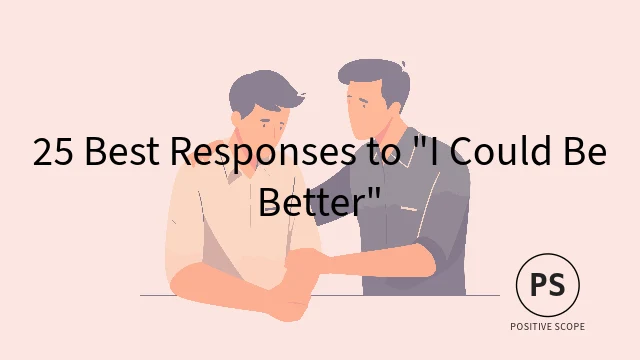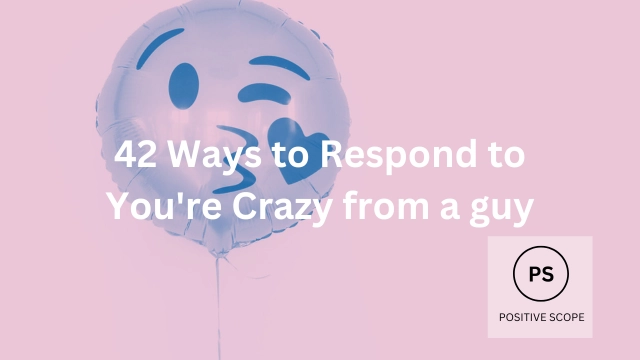11 Clever Comebacks to “I Don’t Care”
Ah, the dreaded “I don’t care.” Everyone seems to know exactly how to use this phrase and when, but not always with the best intentions. It can be used as a way of ending a conversation or deflecting attention away from an uncomfortable topic.
So, what do you do when someone says this to you? How do you respond in a way that will garner their respect and make them think twice about using the phrase again?
Read more to find out our 11 comebacks for “I don’t care”.
Read next: 25 Witty Responses when someone says “You Have No Friends”
Witty Comebacks to “I Don’t Care”

Let’s face it, if someone says, “I don’t care,” chances are they actually DO care a lot – we just need to find a way of prompt their true feelings out!
So here are some funny or clever comebacks you should use the next time someone says “I don’t care.”
1. Then why bring it up?
This is a perfect comeback for when someone claims they don’t care about an issue but keeps bringing it up in conversation.
It suggests that if they really don’t care at all, then why to spend their time speaking about something with such enthusiasm (or anger!). This will make them stop and consider their actions – often prompting them to admit that their nonchalance might be a facade.
2. Sure you do…
This is similar to the first one in that it implies that the person may actually not be as indifferent as they claim to be on the surface.
A phrase like this one implies that maybe deep down inside they do indeed have feelings – even if those feelings don’t show right now!
3. Let’s change that attitude!
Anyone who dismisses concepts or ideas as being beneath them is likely stuck in their ways and won’t budge much on their opinion.
But responding with something like this could encourage them to open up and explore new possibilities or notions …something they might otherwise ignore or willfully resist accepting!
4. I did too until now!
Sometimes people say “I don’t care” without having given something enough thought – leading them to take an overly drastic stance on an issue because of hearsay or other rumors which just sounded more interesting than reality really turned out to be upon further inspection.
A phrase like this one helps give people pause for reflection so they can recognize how important an issue is before taking a blanket-statement position against it …which could save face down the road if what people said initially turns out spot on after further consideration.
5. Don’t try too hard to be cool.
This is a great comeback for when someone is trying too hard to be nonchalant and indifferent.
It implies that they’re not fooling anyone with their “I don’t care” attitude and that it’s actually quite obvious how much they do care about the issue at hand.
6. Of course you don’t care, you never would!
This reply will convey that you believe the person is all talk and that their words mean nothing, given their tendency not to take any kind of action. It shows that you find them predictable, and sends a clear message about what kind of behavior you expect from them in the future.
7. That makes two of us then!
This comeback implies that both parties aren’t taking any interest in what is being said, thus making it more of an agreement between each other than anything else.
It also takes away any reason for argument since neither one of you is invested in having a particular POV win out over another one – simply because neither one cares very much and is just happy with the status quo as it stands now between both of you.
8. Then why did you bother bringing it up?
This comeback questions why this person said anything if they don’t care about it in the first place – and serves as a reminder that sometimes we should think before we speak, especially when our statements may contradict our actions or thought processes overall (in this case, bringing something up without caring about the outcome).
9. How Can You Say That When You Haven’t Even Tried?
When someone says this despite not having tried something yet, it implies that they are being dismissive without actually giving the issue at hand their full attention.
To counter this attitude and try to bring them back into the conversation, phrase your response as an accusation: “How can you say that when you haven’t even tried (fill in the blank)?”
10. Maybe Not Now but It Could Matter Down The Line
In some cases, a person may be thinking about only their immediate needs and desires, not their broader ones.
They may feel like something won’t affect them in any serious way right now or in the near future; however, if situations change, then they might have wished they had given more thought to whatever decision was at stake at the time of their comment.
Bring this to their attention by saying: “Maybe not now but it could matter down the line think long-term too!”
11. Considering you answered, yes, you do care.
Well, we all know that actions speak louder than words. So, if someone says they don’t care but then proceeds to answer your question or comment, it’s clear that they do care about the issue at hand.
This comeback is a great way to call out their hypocrisy and get them to think twice before saying something like this again in the future.
Read next: How to respond to “No One Asked”, “Did I Ask”, or “Who Asked”.
What does it mean when a person says I don’t care?
When a person says they “don’t care” it typically implies they are indifferent to the matter being discussed or don’t have an opinion on it. Alternatively, it could also imply a feeling of resignation and indifference on more general matters.
What to do When a loved one Says I Don’t Care

When someone you care about says “I don’t care,” it typically means one of two things either they truly don’t care, or they are too overwhelmed to put their feelings into words.
Your first step is to take a moment and assess the other person’s body language and facial expressions. Oftentimes, these can give you a better understanding of how the other person is feeling.
If it appears that they are stressed, upset, or resentful in any way, then they may not be completely honest with their statement of not caring.
In this case, it might be best to probe deeper and ask some questions that require more than a simple yes or no answer. Ask them if there is anything wrong or what they think about the issue at hand.
This will allow them to open up about their feelings without feeling as though you are interrogating them.
If the person seems genuinely apathetic towards the topic at hand and not particularly interested in exploring further discussion on the subject, it may be best to accept that fact and move on from the conversation.
Final Thoughts
Overall, it is important to stay calm and composed when someone says “I don’t care.” And although there are plenty of witty comebacks for this phrase, it is best to stick to something assertive that gets your point across without sounding aggressive.
What’s more, you can try a restatement of the facts or even a well-placed question. In any case, you should aim for a response that is respectful yet direct so as not to escalate the confrontation or argument.





